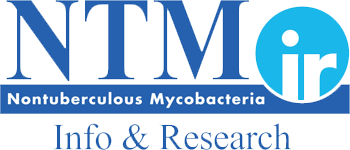Proper nutrition plays a crucial role in supporting individuals with Nontuberculous Mycobacteria (NTM) infections. While managing this condition often requires antibiotics and a tailored care plan, dietary habits can significantly influence overall well-being and immune health. By focusing on nutrient-dense foods and mindful eating practices, you can support your body’s ability to cope with the demands of NTM treatment and symptoms.
Why Nutrition Matters for NTM Patients
NTM infections can weaken the immune system and cause symptoms like fatigue, weight loss, and difficulty maintaining appetite. A balanced diet can help counteract these challenges by:
- Boosting energy levels to combat fatigue.
- Supporting immune function to better fight infections.
- Maintaining healthy weight and muscle mass.
As highlighted in Nutrition Guide, proper nutrition ensures that your body receives the essential vitamins and minerals it needs to stay resilient.
Top Nutritional Tips for Managing NTM
- Prioritize Protein: NTM patients often experience muscle loss due to chronic infections. Incorporating high-protein foods such as lean meats, fish, eggs, beans, and nuts can help maintain muscle strength and recovery.
- Focus on Nutrient-Dense Foods: Include a variety of fruits, vegetables, whole grains, and healthy fats to provide your body with the antioxidants and nutrients necessary for healing and fighting inflammation.
- Manage Mucus Production: Some foods may increase mucus, such as dairy or fried items, while others like ginger, garlic, and turmeric may help reduce it. Learning what works best for your body is key.
The Role of Hydration and Digestion
Proper hydration is essential for individuals with NTM, particularly for thinning mucus and promoting better lung function. Aim for at least 8–10 glasses of water daily, or as recommended by your healthcare provider. Additionally, consider including probiotic-rich foods like yogurt or kefir (if tolerated) to support gut health, which is often impacted by antibiotic treatments.
Developing a Personalized Nutrition Plan
Every individual with NTM is unique, and nutritional needs may vary depending on factors like age, activity level, and treatment side effects. Consulting with a registered dietitian who understands NTM can help you design a plan that fits your needs and preferences.
Building a Sustainable Eating Routine
Coping with the daily demands of NTM can feel overwhelming. However, building a routine that incorporates small, frequent meals and nutrient-rich snacks can make eating manageable and enjoyable. Consider meal prepping or seeking support from caregivers to ensure access to healthy meals.
Proper nutrition is a cornerstone of managing NTM, helping to strengthen the body and improve quality of life. By making intentional dietary choices, staying hydrated, and seeking professional guidance, you can navigate the challenges of NTM with greater confidence.
For more tips on nutrition guidelines, watch this helpful YouTube video, which offers additional insights on dietary approaches tailored to NTM patients.
